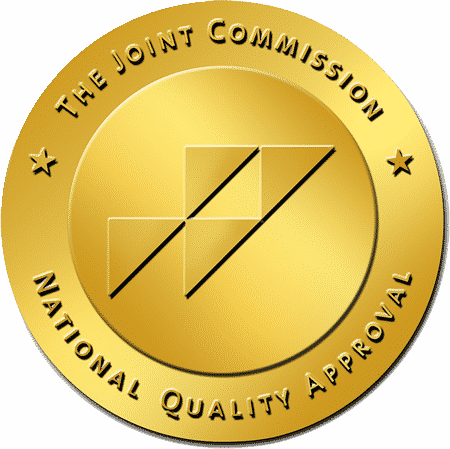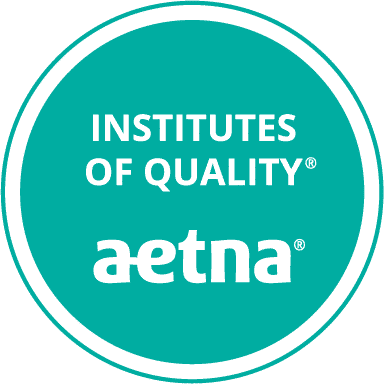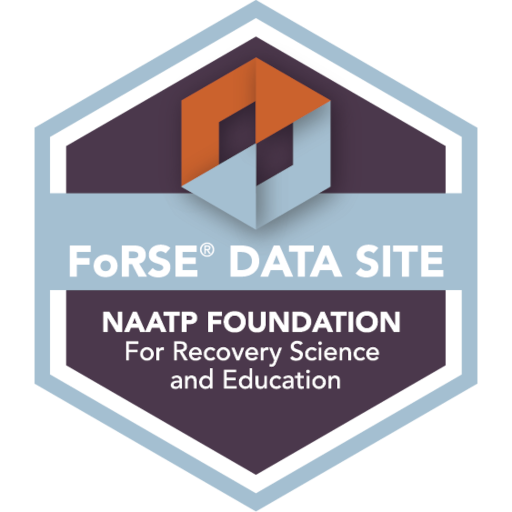If you’re searching ‘am I depressed,’ it’s likely you’re experiencing challenging symptoms that have you questioning your mental health. Being depressed involves more than feeling sad; you may notice a persistent down mood, loss of pleasure in activities, and alterations in sleep or eating habits. We hope the information in this post will help you understand these signs and find a mental health professional or if coupled with alcoholism or addiction, you can access services at La Hacienda.
Key Takeaways
- Depression is a complex mood disorder driven by genetic, biological, environmental, and psychological factors; it impairs usual day-to-day functioning and a mental health professional can help diagnose depression and if needed look at other mental health conditions.
- Recognizing symptoms of depression, such as persistent sadness, hopelessness, and changes in appetite and sleep, is crucial, and adopting harmful coping mechanisms like drug or alcohol abuse can exacerbate the condition.
- Professional help is key in diagnosing and treating depression, and options include therapy, medications, and community resources, which are more effective when tailored to address both depression and substance use disorders together.
Understanding Depression: A Brief Overview
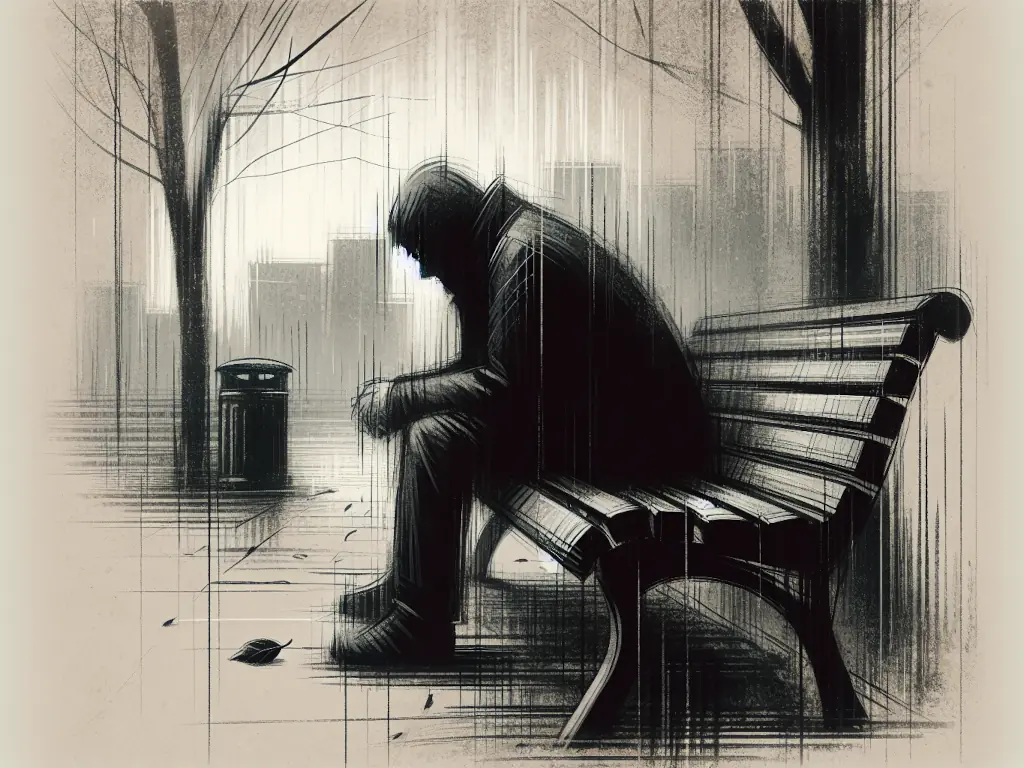
Depression, a significant mood disorder, has the potential to disrupt daily tasks, affecting many aspects of life from work to school to personal relationships. Its roots lie in a complex web of genetic, biological, environmental, and psychological factors, making it one of the most common mental health conditions. It is not indicative of a person’s weakness or character flaw, but a serious condition that requires a professional diagnosis.
Depression tends to disrupt a person nearly every day, resulting in feeling tired yet having trouble falling asleep, trouble concentrating, persistent sadness and a dwindling interest in previously enjoyed activities. For individuals feeling depressed, they are not aware of pleasure and have a loss of energy, causing them to retreat from life and feel hopeless.
Despite this bleak reality, there is hope. Depression is treatable, and most individuals with depression can improve with helpful counseling.
Recognizing the Signs: Am I Experiencing Depression?

Identifying the symptoms of depression paves the way for seeking help. The most common warning signs include:
- Persistent sadness
- Feelings of hopelessness
- Feeling tired and always fatigued
- Changes in appetite or sleep patterns
These symptoms can create substantial disturbances in everyday activities, impacting professional responsibilities, academic pursuits, social engagements, and interpersonal connections.
Regrettably, certain individuals may resort to harmful coping strategies to deal with their depression, such as:
- suppressing problems
- isolating themselves
- avoiding issues
- relying on substances
These strategies can lead to further complications, such as trouble concentrating and other cognitive issues. Keep in mind that depression is a recognized mental health disorder and cannot be overcome by merely adopting a positive attitude. Professional help is usually required for effective management and recovery.
Emotional and Physical Symptoms
Emotional symptoms of depression may manifest in a variety of ways. These include:
- Feelings of worthlessness or guilt
- Persistent sadness
- Fixation on past failures
- Difficulty concentrating and making decisions
- Irritability
- Anxiety
- Loss of interest in activities once enjoyed
It’s not uncommon for individuals suffering from depression to feel sad and feeling tired most of the time, adding to the emotional toll of the condition.
Physically, depression could cause the following symptoms:
- Sleep disorders such as insomnia, which may include trouble falling or staying asleep
- Chest discomfort
- Fatigue
- Changes in appetite, poor appetite or overindulging in food
All of these symptoms can greatly cause an individual to question what is happening to them..
Behavioral Changes to Watch For
Depression can notably change a person’s behavior. Some individuals may withdraw socially, leading to isolation and changes in how they interact with others. This can result in feelings of depression, hostility, rejection, and anxiety, and in extreme cases, suicidal thoughts.
Individuals suffering from depression often lose interest in hobbies and activities that previously brought them joy and notice changes in their appetite, resulting in gained weight or weight loss.
Depression can also have a significant impact on cognitive abilities, including:
- Attention
- Memory
- Information processing
- Decision-making skills
It’s common for individuals with depression to have trouble making decisions, often leading to choices that alleviate anxiety and further fuel their depression, such as poor eating habits or poor appetite. Recognizing these behavioral changes is vital for early intervention and treatment.
The Impact of Substance Use on Depression
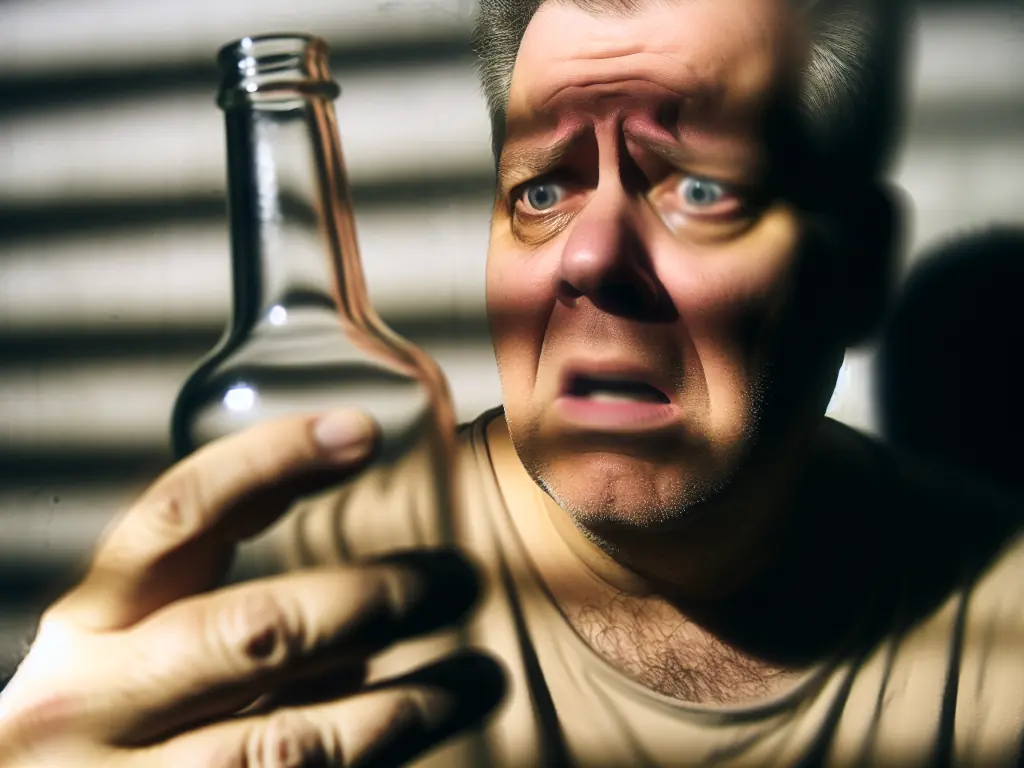
Depression and substance use share a complicated and intricate relationship. Symptoms of depression can exacerbate substance misuse, while substance use can trigger or worsen depression. When both disorders are present, addressing them concurrently is key to a successful recovery. Substance use can also cause sleep disturbances, such as trouble staying asleep, adding another layer of complexity to the condition.
Substance use can intensify depression symptoms through various mechanisms. It can:
- Mimic depressive symptoms, complicating diagnosis
- Provoke imbalances in brain chemicals, amplifying depressive symptoms and potentially leading to health complications
- Escalate the severity of depressive episodes
- Contribute to self-destructive behavior
Understanding Substance-Induced Depression
Substance-induced depression occurs when the initial euphoria of alcohol or drug use wears off, leaving a trail of exacerbated depressive symptoms in its wake. Substance use can lead to increased fatigue, impaired concentration, and reduced inhibitions. It also has the potential to trigger or exacerbate feelings of loneliness, sadness, and hopelessness commonly linked to depression.
Physiologically, substances that induce depression can lead to depressive, anxiety, psychotic, or manic symptoms. The use of drugs can exacerbate depressive symptoms, particularly during withdrawal, due to shared mechanisms and anatomical pathways between depression and addiction. Despite these challenges, substance-induced depression is reversible. The cornerstone of recovery is addressing the substance causing the condition.
Seeking Help for Dual Diagnosis
Dual diagnosis refers to the co-occurrence of a substance use disorder and a mental health disorder like depression. In the United States, between 18.3% and 54% of adults, or about 9.2 million individuals, suffer from dual diagnosis. Dual diagnosis treatment is tailored to concurrently address both the mental health disorder and the substance use disorder, which has proven more effective than treating each disorder separately.
Addressing dual diagnosis involves:
- Managing the interconnectedness of mental health and substance abuse
- Clearly identifying individual issues
- Delivering comprehensive and integrated care
- Ensuring effective communication among healthcare providers.
Seeking assistance for a dual diagnosis can result in a more favorable prognosis through the acquisition of integrated programming that addresses both issues simultaneously.
Gender Differences in Depression

While both genders can develop depression, it is more common among women than men. Women may experience unique forms of depression related to hormonal changes, such as perinatal or perimenopausal depression, and severe forms of premenstrual syndrome known as premenstrual dysphoric disorder.
Researchers are currently investigating the reasons behind these mood disorders, which are triggered by changes in reproductive hormones. Their objective is to gain insights into the increased susceptibility of certain women and enhance the diagnosis and treatment of depression.
Self-Assessment and When to Seek Professional Help
Self-assessment is key in comprehending and dealing with depression. It’s important to monitor your mental well-being and acknowledge the necessity of assistance. In instances of acute distress or thoughts of suicide, reaching out promptly to emergency services or crisis hotlines is crucial.
Should you experience symptoms like persistent sadness or a lack of interest in activities, seeking professional help is paramount. Making an appointment with a doctor or mental health professional as soon as symptoms of depression are recognized is recommended.
Who can Diagnose Depression?
A mental health professional, such as a psychologist, psychiatrist, or clinical social worker, can diagnose depression. This diagnosis is important for getting the right treatment.
The diagnostic process involves:
- Evaluating the symptoms over a two-week period
- Considering the family health history
- In order to receive a diagnosis of depression according to the DSM-5 criteria, it is necessary to have five or more main symptoms consistently present for a minimum of two weeks.
You can identify facilities and programs within your state by utilizing the Behavioral Health Treatment Services Locator offered by the Substance Abuse and Mental Health Services Administration (SAMHSA), a branch of the Health and Human Services department.
The Role of Mental Health Screening Tools
Mental health screening tools aim to identify individuals potentially at risk of specific behavioral health conditions or disorders. They operate by prompting individuals to respond to a series of questions regarding their symptoms and emotions to evaluate their mental health and systematically monitor patients’ fundamental symptoms.
Commonly used screening tools for depression include:
- The Patient Health Questionnaire (PHQ)–2 and PHQ-9
- The Diagnostic criteria for major depressive disorder (DSM-5)
- The Hamilton Depression Rating Scale (HDRS)
- The Beck Depression Inventory (BDI)
Although these screening tests can indicate depression, further evaluations are necessary to ensure the symptoms align with the diagnostic criteria for depression. This ensures the accuracy of the screening tools and helps professionals provide the most effective options.
Various online mental health screening tools are recommended by professionals, including:
- ementalhealth.ca
- screening.mhanational.org
Making the Decision to Talk to a Professional
Acknowledging the symptoms of depression and deciding to seek professional assistance is a major stride towards recovery. Some common symptoms of those who experience depression include:
- Persistent sadness
- Loss of interest in activities
- Changes in appetite or weight
- Difficulty sleeping or sleeping too much
- Fatigue or lack of energy
- Feelings of worthlessness or guilt
- Difficulty concentrating or making decisions
- Irritability or restlessness
- Physical symptoms like headaches or stomachaches
- Suicidal thoughts
If you are experiencing any of these symptoms, it is important to seek professional help.
A consultation with a professional like a therapist can be beneficial in managing depression by offering a secure and supportive environment to articulate feelings, gain understanding of underlying issues, and acquire coping mechanisms to handle symptoms.
Preparation for the initial visit with a mental health professional should involve comprehensive research, familiarize yourself with your medical background, gain knowledge about the fundamentals, advocate for a collaborative treatment approach, and evaluate your symptoms and concerns.
Categories of professionals available for consultation regarding depression include:
- Psychologists
- Psychiatrists
- Psychoanalysts
- Psychiatric nurses
- Psychotherapists
- Mental health counselors
- Family and marriage counselors
- Addiction counselors
Treatment Options and Supportive Resources
Depression is a condition that can be treated with a range of available options. These include psychotherapy, medication, or a combination of both. Antidepressants are frequently prescribed medications for treating depression, and they can yield positive results when used in conjunction with psychotherapy methods like cognitive behavioral therapy or interpersonal therapy.
Cognitive Behavioral Therapy (CBT) is a type of psychotherapy that focuses on recognizing and modifying negative thoughts, emotions, and behaviors. It has proven to be effective in addressing various mental health and substance use conditions, including depression.
While asking for help in dealing with depression may seem intimidating, remember that you are not alone. There are resources available to help you navigate through this challenging journey. Talking to other individuals for substance abuse and mental health issues can stop a crisis.
A local doctor can also give referrals, and if money or lack of insurance is ever stopping you or a loved from seeking help, there are free hotlines available 24/7.
988 Suicide and Crisis Lifeline
988 Suicide and Crisis Lifeline answers calls in English and Spanish throughout the United States. They offer the ability to call, text or chat.
Navigating Through Therapy and Medication

Various therapeutic approaches are employed in the treatment of depression. These encompass:
- Cognitive Behavioral Therapy (CBT)
- Interpersonal Therapy (IPT)
- Mindfulness-Based Therapies
- Dialectical Behavior Therapy (DBT)
- Psychodynamic Therapy
Cognitive behavioral therapy (CBT) plays a key role in treating depression by addressing negative thought patterns and behaviors, imparting coping skills and problem-solving techniques, and fostering positive thinking patterns and healthier behaviors.
Antidepressant medication may be deemed appropriate after the utilization of psychotherapy, typically taking 4 to 8 weeks to yield results. It’s crucial to seek guidance from a healthcare professional before initiating any depression medication, particularly for adolescents or young adults. Furthermore, discontinuing antidepressant medication should only be undertaken under the supervision of a healthcare provider.
The frequently prescribed medications for depression are selective serotonin reuptake inhibitors (SSRIs) including:
- fluoxetine (Prozac)
- citalopram (Cipramil)
- escitalopram (Cipralex)
- paroxetine (Seroxat)
- sertraline (Lustral)
Building a Support System
A robust support system is vital for managing depression and sustaining recovery. It provides encouragement, understanding, and practical assistance during difficult times. The recommended individuals to be included in a support system for depression recovery are those whom you like, respect, and trust, such as family members, friends, and mental health professionals like therapists, counselors, and psychiatrists.
Groups can have a significant impact on the treatment of depression by offering emotional support, validation, and a sense of belonging. They provide a safe environment for individuals to share experiences and acquire coping strategies, ultimately reducing feelings of isolation.
Family and friends are instrumental in providing emotional support, understanding, and practical aid, such as aiding with daily responsibilities or attending therapy sessions. These additional resources are essential for recovery and the prevention of depression.
La Hacienda’s Approach to Co-Occurring Disorders
Since 1972, La Hacienda Treatment Center provides a holistic approach to co-occurring disorders. Substance Use Disorder coupled with depression can be determined by assessment and taking a depression test or quiz. To determine if depression is a result of the sbstance use each symptom is discussed and addressed by our medical team. Implementing self-care routines, engaging in physical activity, and maintaining a healthy lifestyle for managing depression is key.
La Hacienda provides medical detoxification and inpatient treatment. The typical duration of the program at La Hacienda is usually 30-60 days. During this time each patient has the ability to address different types of their depressed mood and talk about their usual day as they stop using substances.
Every person can speak and visit with a doctor to determine depressed energy from stopping substances versus depression being self medicated with alcohol and drugs. Together as the hurting subsides a treatment plan is put in place with the clinical team.
What to Expect During Your Stay
Patients at La Hacienda Treatment Center can anticipate an individualized and comprehensive care that addresses both addiction and co-occurring disorders like depression. The center implements personalized plans and methods for dual diagnosis patients including relapse prevention and medication management if needed.
Comprehensive Family Program
La Hacienda has established a comprehensive Family Program aimed at providing education to family members in understanding addiction and equipping them with the necessary knowledge to effectively contribute to their loved one’s recovery journey. Within 3-5 weeks of entering the comprehensive treatment program at La Hacienda Treatment Center, patients have completed most phases of residential treatment.
How to Reach Out for Help
The first stage in seeking help from La Hacienda Treatment Center involves consciously deciding to seek help. You may directly contact their admissions team to commence the process. It’s important to gather information about your substance abuse history, any co-occurring mental health disorders, and past treatment experiences before contacting La Hacienda Treatment Center. This will facilitate a smooth and efficient initial contact with the admissions team.
La Hacienda Treatment Center has 24/7 medical staff, enabling initial consultations and ongoing support during your stay. To reach out for help with substance abuse and co-occurring disorders, you can contact La Hacienda Treatment Center to speak with the admissions department.
Summary
The multifaceted nature of depression; its causes, symptoms, and the importance of recognizing the signs are imperitive to seeking help. The relationship between depression and substance use can be a big part of a co-occurring or dual diagnosis. Recognizing the gender differences in depression, highlighting the unique types of depression women may experience due to hormonal changes.
The journey of understanding and managing depression may be challenging, but it’s important to remember that help is available. Whether through mental health screening tools, professional help, treatment options, or supportive resources like support groups and a robust support system, you are not alone.
La Hacienda Treatment Center provides comprehensive treatment for addiction, depression and co-occurring disorders, offering a range of services from medical detox to inpatient treatment.
Frequently Asked Questions
What are the 5 levels of depression?
The National Institute of Mental Health (NIMH) does not categorize depression into 5 specific levels. However, if a depression diagnosis is given, ir can be classified as mild, moderate, or severe.
What are symptoms of depression?
If you have been experiencing persistent sad, anxious, or “empty” mood, feelings of hopelessness, irritability, or frustration for at least 2 weeks, you may be experiencing depression. It’s important to seek help and support.
What is a dual diagnosis?
A dual diagnosis refers to the co-occurring of a substance use disorder and a mental health disorder like depression. It often requires integrated treatment to address both conditions effectively.
What is the role of mental health screening tools?
Mental health screening tools help identify individuals at risk for specific behavioral health conditions or disorders by prompting them to respond to a series of questions regarding their symptoms and emotions. They can be a valuable resource for early intervention and treatment.
What does treatment for depression typically involve?
Treatment for depression typically involves psychotherapy, medication, or a combination of both, along with support from family, friends, and mental health professionals to effectively manage the condition.
Sources:
https://www.samhsa.gov/find-help

